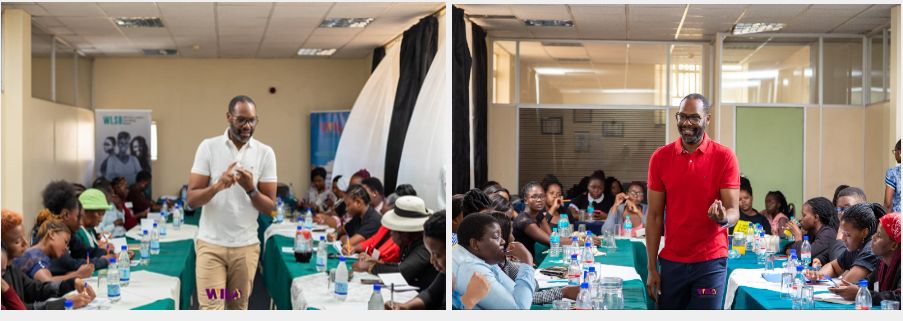WILD Training Equips 80 women on Social Accountability and Gender Responsive Budgeting
Loraine Phiri and Princess Tshuma

The Women’s Institute for Leadership Development (WILD) recently concluded a two-phase social accountability and gender responsive capacity training for 80 women from Bulawayo, Lupane, Plumtree, and Gwanda. This initiative aimed to equip participants with the skills and knowledge to actively engage in local and national decision-making processes, advocate for gender responsive budgeting, track and monitor public spending, ultimately ensuring resources are allocated effectively to improve service delivery within their communities.
Participants learned methods for tracking public spending, including participatory budget expenditure tracking, gender-based budgeting, performance monitoring, social audits, and community scorecards. They also learnt the social accountability systems and the four key pillars of a healthy social accountability ecosystem.
Facilitating the 2 day training, Delta Sivalo emphasized the importance of understanding social accountability as a collaborative effort. He highlighted the need for strengthened relationships of accountability between policy makers, service providers and citizens
“A healthy social accountability ecosystem requires collective action from citizens, responsive governments, access to information, and contextual understanding,” Sivalo explained. “There is a tendency to just demand accountability, but it’s also about taking responsibility. Building relationships with leaders and maintaining open communication is crucial for responsiveness and long-term impact.”
Sharing their key takeaways of the capacity training, Sukoluhle Mhlanga from Bulawayo highlighted the practical tools gained from the training: “I learned about the Freedom of Information Act, citizen monitoring, public hearings, community scorecards, and public interest litigation. These tools empower us to hold government institutions accountable.”
Barbra, a participant from Lupane, emphasized the importance of shared responsibility: “As a society, I learnt the importance of being active and responsibly participants. As citizens we need to understand our responsibilities and we also need to understand the roles and the responsibilities of our leaders for social accountability. I also learnt that the Freedom of Information Act guarantees me the right to access public information and inquire about issues that affect us as citizens.”
Tahana Dube from Plumtree shared her newfound knowledge: “I learned how to access public expenditure records and advocate for gender responsive budgeting. Previously, I wasn’t aware that these records were accessible to the public. The RDC rarely shares these records, and hearing about fee increases (Imthelo yemizi) without understanding the justification can be frustrating. This training has empowered me to participate in consultations, hold authorities accountable and advocate for gender responsive budgeting and transparent use of public funds.
The women who are part of the Women Leaders sounding board are poised to become active transformers of development in their communities. By advocating for gender-responsive services and promoting social accountability, they will pave the way for a more inclusive and equitable future.
